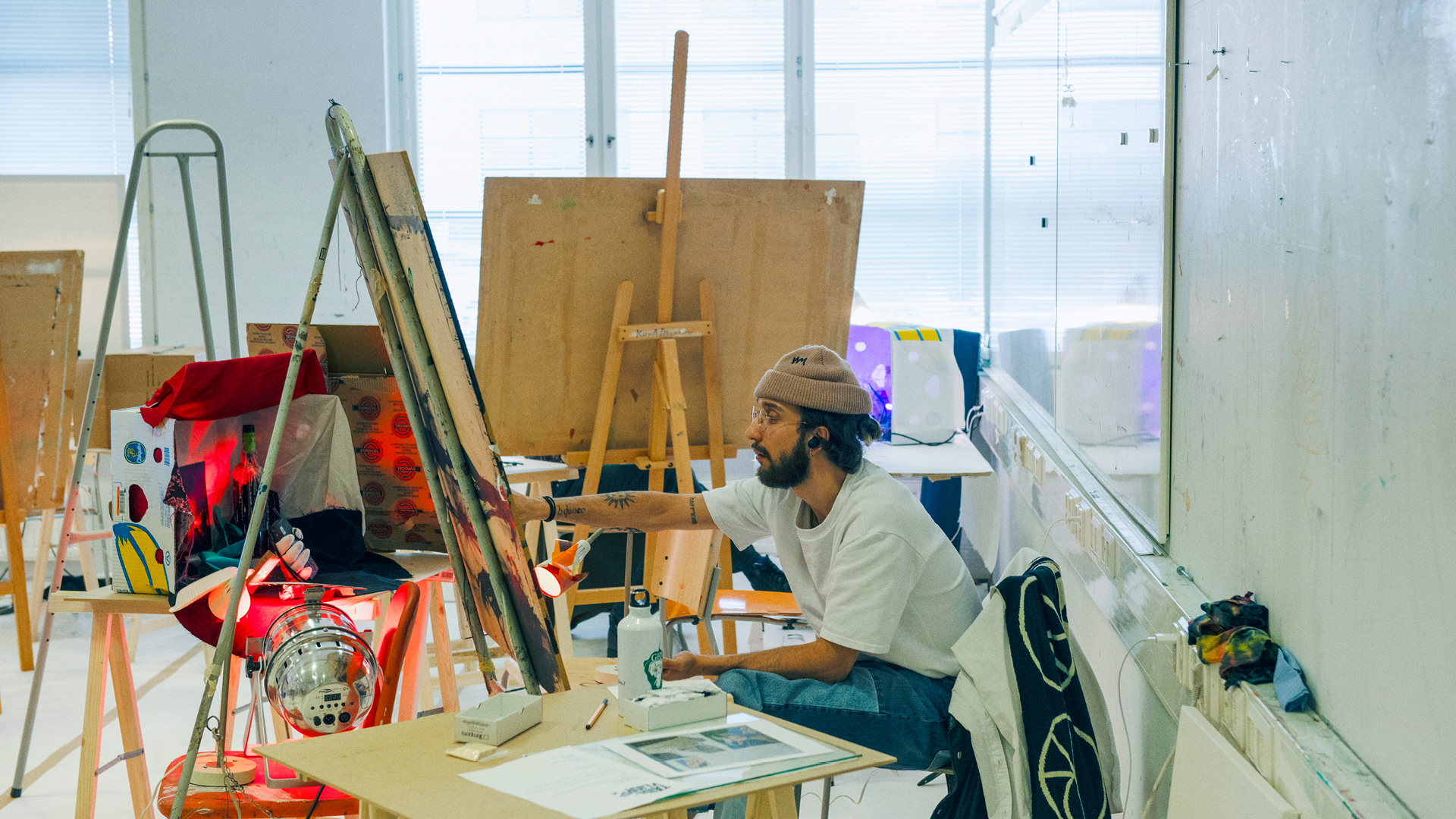Work sustainably at Uniarts Helsinki
One of the six main goals of Uniarts Helsinki’s strategy is that art is part of the solution to the ecological sustainability crisis. Here at Uniarts Helsinki, we want to be as ecological as possible in all of our activities. Read our tips on how to work sustainably at Uniarts Helsinki!

Choose a sustainable transport method: commute by bike, use the public transport and travel by land
The majority of Uniarts Helsinki’s carbon footprint and 37% of the average Finn’s carbon footprint consists of travelling. Passenger car traffic causes about a half of the Finns’ emissions, while air travel constitutes the vast majority of emissions included in Uniarts Helsinki’s carbon calculations.
Most of the travels made by car in Finland are under five kilometres. These trips could easily be made by bike or by using public transport while still keeping the travel time the same or even making it shorter, especially in the Helsinki city centre.
Globally, the air traffic sector is the fastest-growing source of emissions. While overland traffic and energy sector are largely making the shift to fossil-free solutions, it is more difficult to replace fossil fuels used in air traffic. It has been assessed that the climate emissions from flying will double or triple over the next few decades and that by then, air traffic may constitute up to 40% of the emissions in the EU.
Tips for sustainable travelling:
- Favour cycling, walking and public transport when commuting between your home and workplace. Riding a bike is also an excellent way of being physically active in everyday life.
- If you travel abroad or make longer trips in Finland to carry out work duties, remember to follow Uniarts Helsinki’s guidelines on sustainable travelling. The guidelines give advice on how to assess whether a trip is needed or not and how to calculate working time during travelling as well as information on per diem allowances, sustainable travelling and the internal carbon offsetting scheme for flights.
Consume and buy only when needed, take care of goods and favour responsible alternatives
Consumption of goods and services constitutes 21.5 per cent of the average Finn’s carbon footprint. Acquisitions also form a major part of Uniarts Helsinki’s carbon footprint.
Finns consume natural resources well beyond the limits of the planet’s capacity and also more than the global average. If everyone consumed as much natural resources as Finns, the world would need the natural resources of nearly three planets to keep up with the consumption.
At Uniarts Helsinki, we acquire goods and services only after careful consideration and due to genuine needs. We also take good care of our shared belongings. Whenever acquiring goods and services at Uniarts Helsinki, we have the option to add sustainability and responsibility as criteria in the procurement decision. That means it is not necessary to pick the cheapest alternative if it is not a responsible one.
Uniarts Helsinki’s guide on responsible procurement provides detailed guidelines on how sustainability and responsibility should be taken into account in procurements of various prices and specifications.
Eat and order plant-based food for catering
Food constitutes 23.5 per cent of the average Finn’s carbon footprint. In Finland, 72 per cent of the emissions from the food people eat are caused by beef and dairy products, such as cheese. Contrary to popular belief, transport and waste account for only 9% of the climate impact of food consumed in Finland.
The most effective way to reduce the harmful environmental effects of food is to reduce the consumption of products of animal origin or to switch to an entirely plant-based diet.
The climate emissions of the average Finn’s diet can be even halved by switching to plant-based food, which is also a healthier choice than a mixed diet for most people.
At Uniarts Helsinki, we favour solutions that are sustainable in terms of the environment, nature, animal rights and human health in the catering that we order. That is why we serve only sustainably produced vegetarian food and responsibly caught Finnish fish in our meetings and events.
Incorporate environmental sustainability into your own work
Nearly all members of the Uniarts Helsinki community can influence the university’s sustainability in some way through their personal roles. Talk to your supervisor and colleagues and reflect on what kinds of decisions you could make to reduce the environmental burden and make a positive impact through teaching, research, artistic activities, services and management.
You can seek inspiration from the Moodle platform for ecological sustainability for making positive sustainability choices in your own job role.